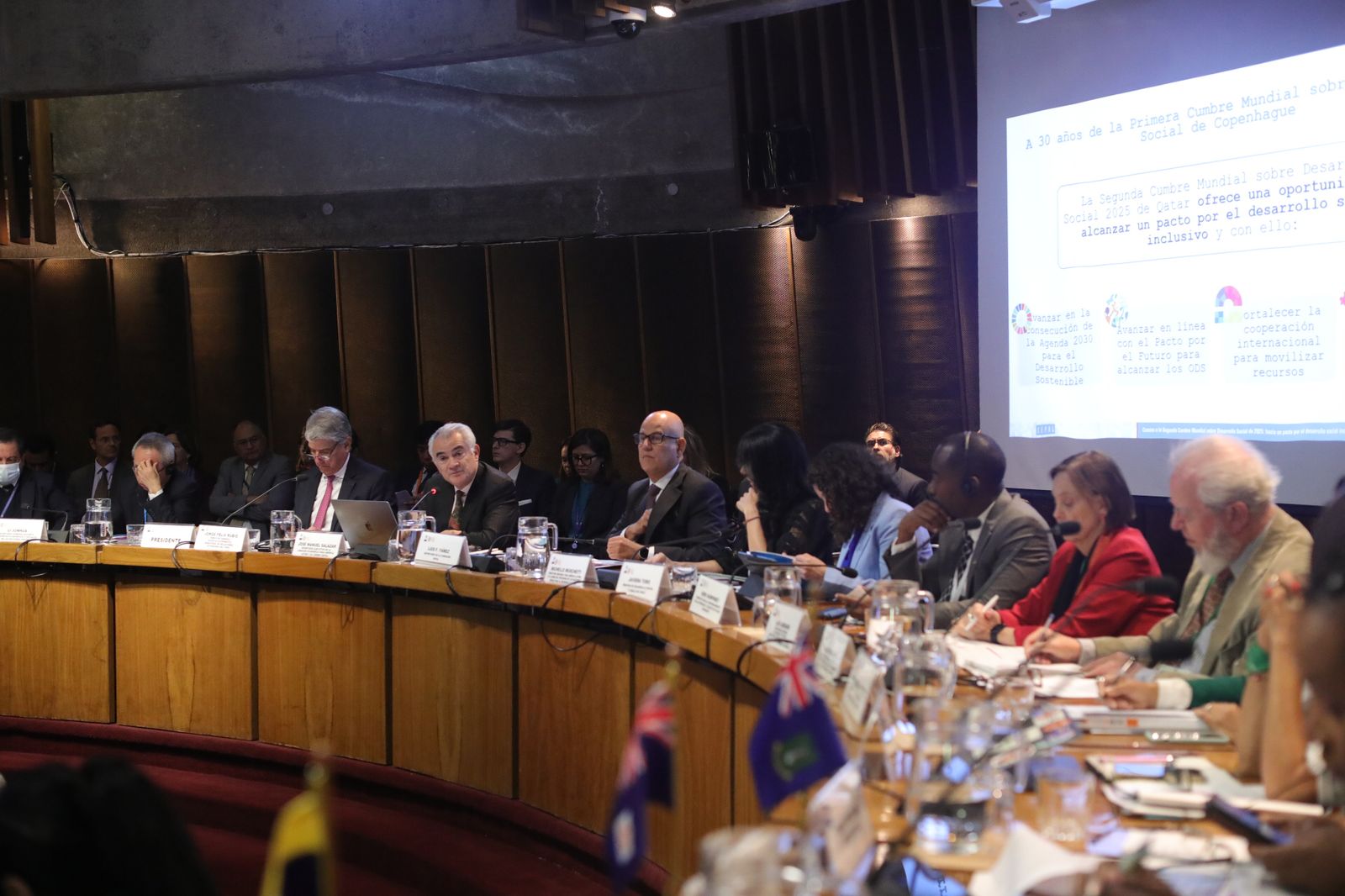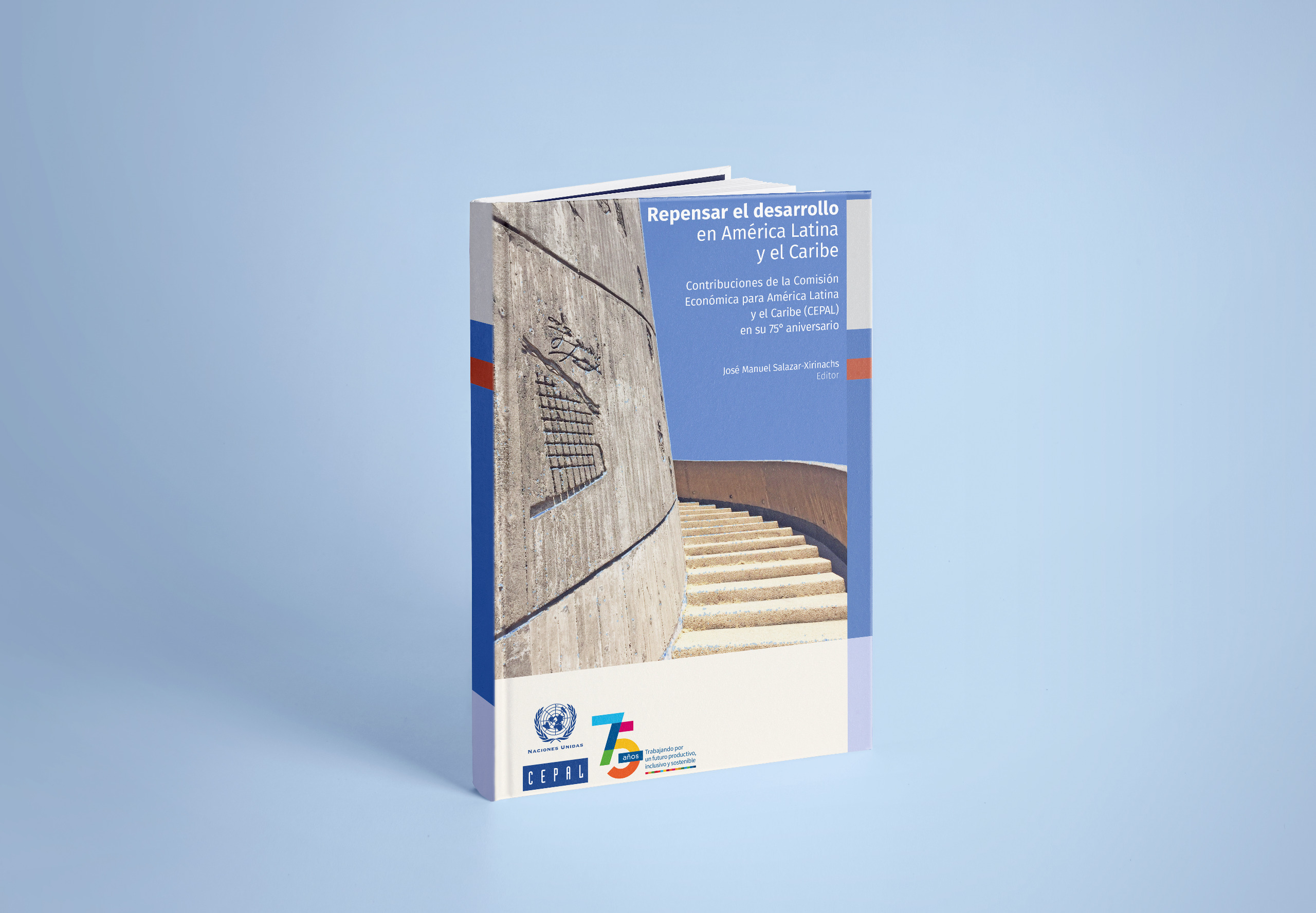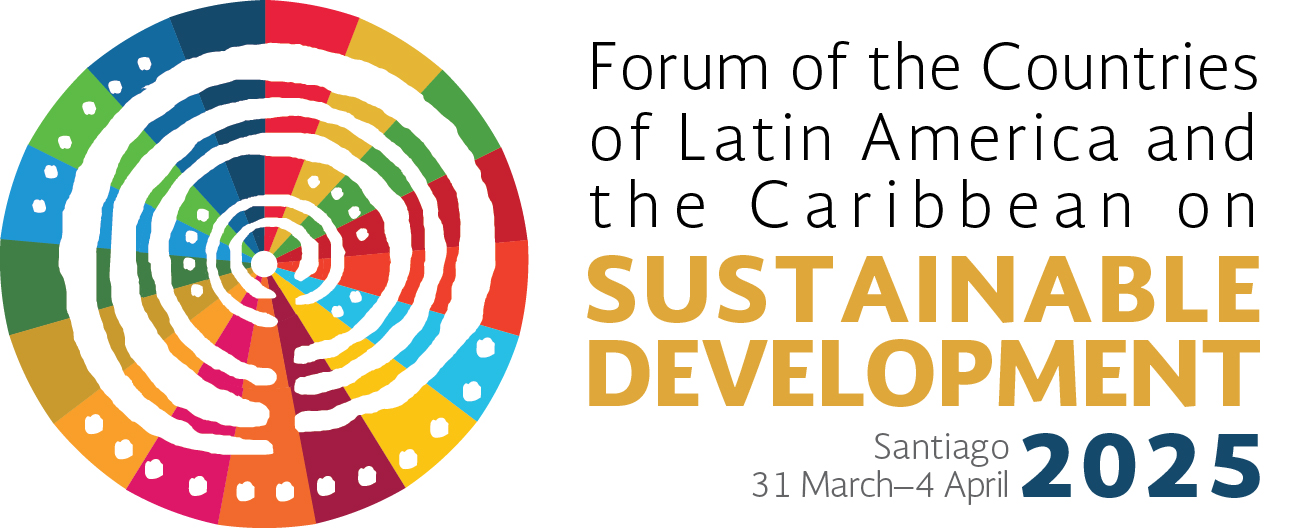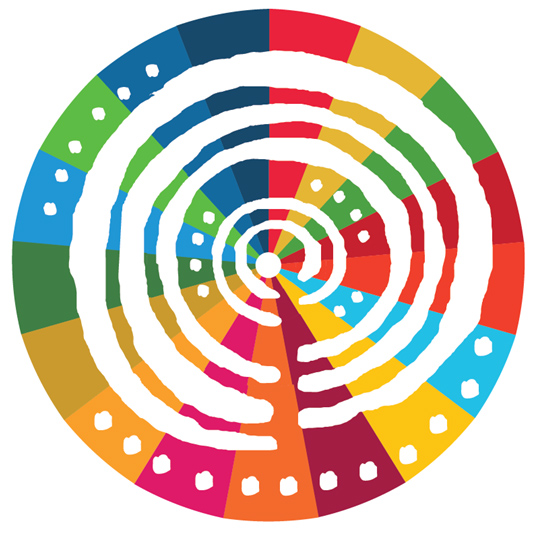Redoubling the Commitment and Expanding Capacities: Keys to Achieving Fulfillment of the SDGs in a Complex International Context
Work area(s)
Authorities and international experts have gathered in Santiago, Chile for the eighth meeting of the Forum of the Countries of Latin America and the Caribbean on Sustainable Development 2025, at ECLAC’s headquarters. The meeting is focused on reaching agreements and sharing experiences to surmount the region’s lag in fulfilling the 2030 Agenda.

“No social actor, on their own, can achieve fulfillment of the Sustainable Development Goals (SDGs). Without cooperation and without partnerships, there is no 2030 Agenda.” With this declaration by ECLAC’s Executive Secretary, José Manuel Salazar-Xirinachs, the official inauguration took place this Tuesday, April 1 of the eighth meeting of the Forum of the Countries of Latin America and the Caribbean on Sustainable Development, the main intergovernmental gathering on the 2030 Agenda in the region, which is held each year under the auspices of ECLAC.
Senior government authorities from Latin America, the Caribbean and other regions of the world, along with officials and experts from the United Nations System, international and regional organizations, the private sector, academia and civil society are gathering at the central headquarters of the UN Economic Commission for Latin America and the Caribbean (ECLAC) in Santiago, Chile through Friday, April 4 to review the progress and challenges related to achieving the 2030 Agenda, five years ahead of its deadline for fulfillment.
As a special innovation, this meeting of the Forum will feature a series of dialogues on global, regional and national action, in which participants will evaluate progress and exchange experiences and good practices around compliance with this global road map for development that was defined by the United Nations in 2015.
The eighth meeting of the Forum was inaugurated by ECLAC’s Executive Secretary, José Manuel Salazar-Xirinachs; the Vice Minister of Foreign Affairs of Peru, Félix Denegri, in his capacity as official representative of the country that is currently serving as Chair of ECLAC; the Under-Secretary-General for Economic and Social Affairs of the United Nations (UNDESA), Li Junhua; and the Deputy Secretary-General of the United Nations, Amina Mohammed (via video message).
In his welcome remarks, ECLAC’s Executive Secretary indicated that 10 years after the adoption of the 2030 Agenda for Sustainable Development, there is still a lot of ground to cover. “At this time the world is facing a highly uncertain economic context, with the resurgence and intensification of geopolitical tensions, a reconfiguration of international alliances, and threats of various kinds to international cooperation and to the multilateral system,” he warned.
“Although we are lagging in terms of achieving full compliance, can we still talk about the 2030 Agenda with optimism and hope? I think so, because there is still commitment in the region – and perhaps more commitment today – and because there is still a lot of room for maneuver on managing the transformations, on improving how we do things. That’s where I think the big leaps forward for attaining the SDGs can come from,” Salazar-Xirinachs stated.
According to ECLAC’s studies, less than one-fourth of the 2030 Agenda’s targets have been achieved or are forecast to be achieved in the next five years in the region, which means that significant additional efforts are needed. “In that regard, financing continues to be a huge challenge. It is also necessary to strengthen international and regional cooperation, and multisectoral partnerships,” the Executive Secretary said.
Meanwhile, Vice Minister Denegri reaffirmed Peru’s commitment to multilateralism and pointed up the Forum as a venue that allows for promoting cooperation and coordination among countries, fostering the creation of national capacities, and identifying gaps, challenges and shared goals at a regional level. In addition, it enables peer learning through the exchange of good practices and lessons learned. He added that the Forum serves as a platform for forging partnerships, facilitating participation and dialogue among key actors committed to pursuing sustainable development, including governments, United Nations organizations, development banks, civil society, academia and the private sector.
In her message sent by means of video, the UN Deputy Secretary-General, Amina Mohammed, called for all stakeholders to continue accelerating action on the SDGs and to use this Forum to ensure that the region’s needs and priorities are represented on the global stage in a critical year. “From the Fourth International Conference on Financing for Development to the Third Ocean Conference and the Second World Summit for Social Development, official development assistance is vital, but alone it will never be enough to meet the scale of the challenges that we face, something this region has known for decades,” she said.
“Let’s make this Forum a turning point, a renewed commitment to the 2030 Agenda, a call for transformation and a platform for joint action to bridge gaps, foster innovation and build a more inclusive, prosperous and sustainable future that leaves no one behind,” the second-highest-ranking UN authority concluded.
Also on this day of the Forum 2025, the dialogues on global action commenced with authorities and experts exchanging views about the global commitments that are expected to arise from the 4th International Conference on Financing for Development (Seville, Spain, 2025), the Second World Summit for Social Development (Qatar, 2025) and the 30th session of the Conference of the Parties to the United Nations Framework Convention on Climate Change (Belém do Pará, Brazil, 2025).
In addition, in the afternoon, sessions will be held on the 30th anniversary of the Fourth World Conference on Women and approval of the Beijing Declaration and Platform for Action (1995), and on follow-up to the implementation of the Pact for the Future and its annexes, approved at the Summit of the Future in September 2024.
A special session led by ECLAC’s Executive Secretary, José Manuel Salazar-Xirinachs, also took place to launch the book Rethinking Development in Latin America and the Caribbean: Contributions from the Economic Commission for Latin America and the Caribbean (ECLAC) on its 75th Anniversary, which compiles the keynote articles of prominent thinkers and specialists in various areas of development, who offer keys to understanding the region’s history and to building a more productive, inclusive and sustainable future.
This meeting of the Forum will continue tomorrow (Wednesday, April 2) with the presentation of the eighth report on regional progress and challenges in relation to the 2030 Agenda for Sustainable Development in Latin America and the Caribbean, entitled Latin America and the Caribbean in the Final Five Years of the 2030 Agenda: Steering Transformations to Accelerate Progress, which was prepared by the Commission.
This report will be unveiled in the framework of the dialogues on regional action, which will take place through April 4 and will include the sharing of experiences on how to accelerate the use of private and disaggregated data, as well as on progress in implementing SDG 3 (Health and Well-being), SDG 5 (Gender Equality), SDG 8 (Decent Work and Economic Growth), SDG 14 (Life below Water) and SDG 17 (Partnerships for the Goals), which have been chosen for special attention at this edition of the Forum.
Finally, the dialogues on national action will be held on Friday, April 4 through learning sessions on successful national experiences with accelerating the attainment of the SDGs, and participants will share good practices and challenges in preparing the voluntary national reviews (VNRs) that countries present each year to the United Nations High-level Political Forum in New York.
Related event
Related content

Inauguración de la octava reunión del Foro de los Países de América Latina y el Caribe sobre el Desarrollo Sostenible
Palabras de José Manuel Salazar-Xirinachs, Secretario Ejecutivo de la CEPAL.

José Manuel Salazar-Xirinachs: “ECLAC Should Be a Place for Reimagining and Forging the Region’s Long-term Vision”
The United Nations regional organization’s Executive Secretary presented the book Rethinking Development in Latin America and the Caribbean: Contributions from the…
Related link(s)
Country(ies)
- Latin America and the Caribbean
Contact
Public Information Unit
- prensa@cepal.org
- (56 2) 2210 2040

